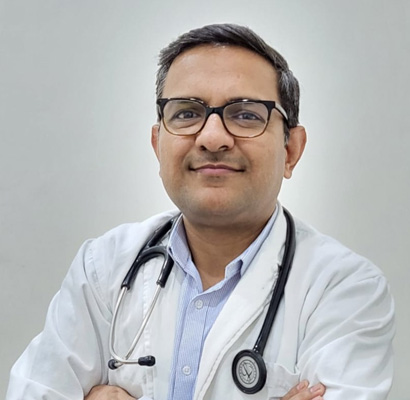At HealthCity, we understand that heart health is paramount, and we are committed to providing expert care to ensure that your heart stays healthy for life. Our Cardiology Department is home to a team of highly skilled, experienced, and compassionate doctors who are dedicated to delivering the highest standard of cardiovascular care.
![]()
Why Choose HealthCity Cardiology Department?
Experienced Cardiology Experts:
Our team of cardiologists brings years of expertise, specialized training, and a passion for heart health. Whether you need routine check-ups or advanced treatment, you’re in the hands of professionals who care about your heart as much as you do.
Comprehensive Heart Care:
We offer a full range of services, from prevention and diagnosis to treatment and rehabilitation. Whether it's a routine heart screening or a complex procedure, we’re equipped to address your every need.
State-of-the-Art Technology:
We utilize the latest medical technologies and diagnostic tools to provide accurate and timely assessments. Our innovative approach ensures that every patient receives the best possible care with the most advanced treatments available.
Personalized Treatment Plans:
No two hearts are the same. We offer customized treatment plans tailored to your specific condition and needs, ensuring the most effective and personalized care.
Holistic Approach to Heart Health:
We don’t just treat symptoms; we focus on your overall well-being. Our cardiology team works closely with other specialists to create a comprehensive, holistic approach to your health.
Our Cardiologist Dr Anupam Mehrotra – Leading Expert in the Field
Our highly qualified cardiologist, is dedicated to improving your heart health. With years of experience in diagnosing and treating a wide range of cardiovascular conditions, our doctor stays up-to-date with the latest advancements in the field of cardiology.
From prevention to recovery, our team is here for you at every stage of your heart health journey. We specialize in a wide array of cardiology services, which includes:
Cardiovascular Screenings & Risk Assessments:
Early detection is key to preventing serious heart conditions. Our comprehensive screenings help identify potential risks and catch issues before they become severe.
Heart Disease Management:
Whether you’re dealing with high blood pressure, high cholesterol, coronary artery disease, or heart failure, our cardiologists are here to help you manage your condition with expert care and guidance.
Advanced Diagnostics & Imaging:
Using state-of-the-art imaging technologies, such as echocardiograms, ECGs, and CT scans, we provide precise diagnoses that guide the best treatment options.
Interventional Cardiology:
For patients requiring procedures such as angioplasty or stenting, our interventional cardiologists are skilled in performing minimally invasive treatments to restore normal blood flow and improve heart function.
Electrophysiology & Arrhythmia Care:
If you suffer from abnormal heart rhythms (arrhythmias), our electrophysiology specialists offer specialized care, from diagnosis to advanced treatments like ablation therapy.
Cardiac Surgery & Post-Surgery Care:
For those needing more invasive treatments, our highly experienced cardiac surgeons and post-surgery rehabilitation team ensure a smooth recovery and improved quality of life.
Meet Our Experienced Team
Our Dedicated Consultant for Cardiology



